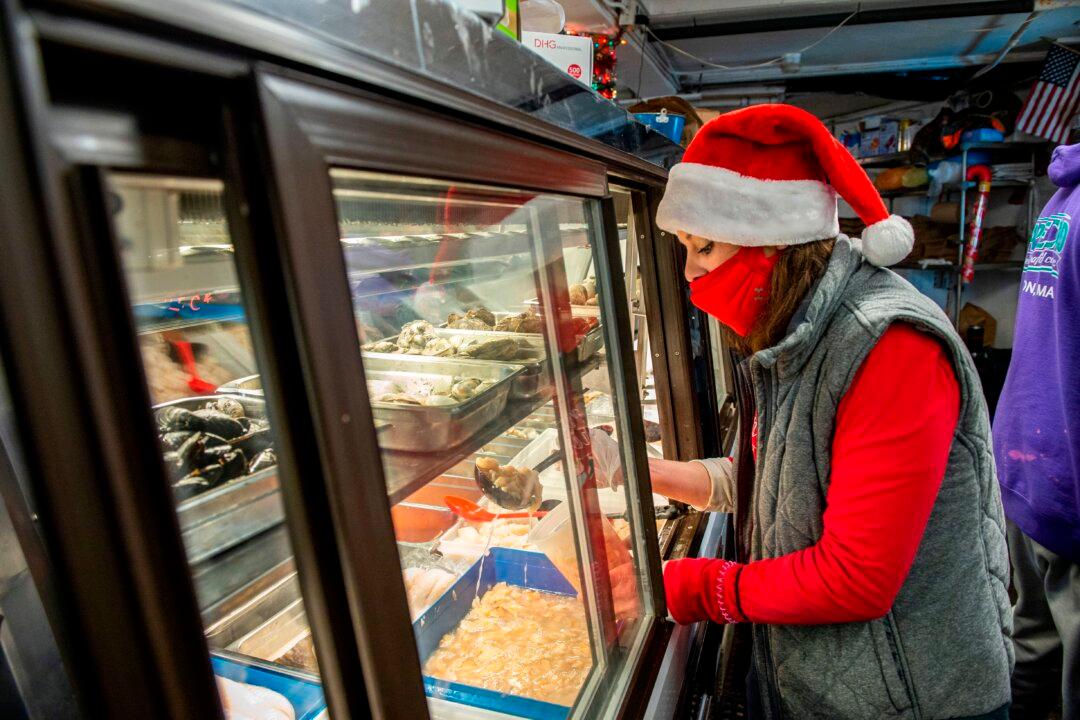
An employee fills a container with minced clam meat at a store in Revere, Mass., on Dec. 23, 2020. Joseph Prezioso/AFP via Getty Images
Christmas means more than presents, but some of the gifts that celebrate the season will be sadly lacking this year.
According to businesses across the country, supply chain issues and government regulations have made it difficult to get goods for Christmas.




